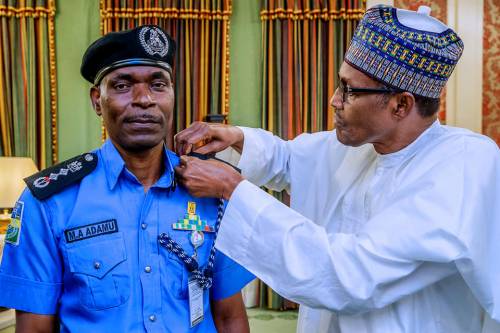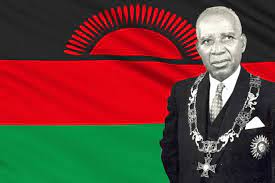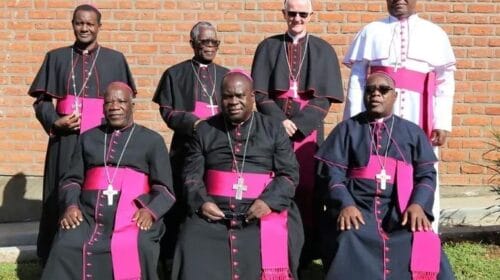Buhari, Adamu And Perils Of The Police Force By Joseph Tirpren Osadebe
There is growing concern in the country regarding the ever changing nature of operations of public rules and the implications for all of us. As important as the constitution and other legal instruments, are the public institutions that have a great bearing on the day to day life of the country and its people. Appropriate and efficient institutions – the civil service, the health service, local government mechanisms, the Police – are vital to the efficient conduct of public life.
It is a matter for great regret that we have neglected these institutions and diminished their authority and the autonomous spaces they had, for the sake of greater political control; the politicization of the Police is no exception.
Politicisation of the police is putting policing of the nation at risk. The tradition of policing is in danger from political interference that is alienating the police from the public.
When officers join the police force they swear an oath of allegiance to the Constitution, not the President or any head of government and are expected never to be servants those in government – until now.
The past five years are characterised by images of the way in which the Nigeria police force has been made to put government targets before serving the public. These targets, result in promotions to top offices with the predictable result that officers lower down the scale come under pressure to concentrate on whatever is targeted, to the neglect of other things.
Following the extension of the tenure of Inspector General of Police, Mohammed Adamu for another three months by President Muhammadu Buhari the leading theme on most discussion tables today, is the politicization of the Nigeria police, especially since 2015 and with a new constitution which removed most of the autonomy that institutions like the police had.
At the center of these discussions is the structure of the police force – recruitment, training, placements, promotions, the principle of seniority, the lack of leadership in the face of political pressure and so on.
Although the President has the discretion to appoint, remove and extend appointments, the new police act, which he signed, limited the act of extending tenure rendering Buhari’s action a clear violation of the act.
Beyond the apparent brutal violation of the guidelines contained in the Police Act 2020, Buhari’s action is as well unconstitutional as it negates the essence of the Constitution and statutes that aim to regulate orderliness, conducts and actions.
The extension of the expired tenure of the IGP without due process therefore is not only unconstitutional but illegal as well by contravening Section 216(2) which stipulates that: “Before making an appointment to the office of the Inspector-General of Police or removing him from office, the President shall consult the Nigeria Police Council.”
Paragraph 27 of the third schedule to the 1999 Constitution states: “The Nigeria Police Council shall comprise the following members: (A) the President who shall be the Chairman; (B) the Governor of each State of the Federation; (C) the Chairman of the Police Service Commission; and (D) the Inspector-General of Police.”
By these citations, it follows that when the tenure of a serving IGP expires on the ground of completing the mandatory 35 years of service, he cannot be asked to continue in office beyond his mandatory tenure.
This is because an IGP who has served the mandatory years of service ceases to be a member of the Nigeria Police Force from the date of the completion of his service and Adamu ceases to be a member of the NPF from February 2, 2021.
And by virtue of Section 215(1)(a) of the Constitution and Section 7(3) of the Police Act, 2020, only a serving member of the Nigeria Police Force can be appointed as IGP, Adamu, having completed his mandatory years of service on February 2, 2021, cannot be appointed as IGP from outside the force.
Clearly, the President lacks the power to reabsorb a retired police officer back into the NPF through a purported tenure extension, which is not contemplated by law. The President cannot appoint an IGP or extend the tenure of a retired IGP without the advice of the Nigeria Police Council, which in this case has not met to consider, let alone approve such tenure extension.
More dangerously, the extension has already cracked the ranks of Nigerian police officers with many towing the thinking of the public that a new IGP is desperately needed to rekindle the long lost morale of officers and men after the carnage experienced as a result of #Endsars protest and the peak of embarrassment that came with the abduction of hundreds of school children in Katsina without trace for six days.
The evolving scenario is a confirmation that we may not find a solution to the problem of insecurity in the country for as long as President Buhari remains in office.
With this, staff morale will further nose-dive because there are so many odds operationally against IGP Adamu, who was supposed to vacate office and allow fresh ideas into the Force.
The explanation that Buhari needs ample time to select the new IG of police further complicates the situation by lending credence that the man in the Villa may lack the necessary presence of mind to function in that capacity.
This action is bound to drastically kill the ambition of other officers who are also qualified for the office by making it appear as if it is only the retired IGP Adamu that is qualified for the job.
There are cogent worries that Buhari with this action, deliberately intends to humiliate a particular set of persons on the succession list because two years were enough for government to have fished out an eligible successor from the list of legitimate competent claimants.
Going by this, it becomes expedient for President Buhari to move to reclaim his statesmanship by rectifying this monumental breach of the nation’s governing laws lest he would go down in history as one Nigerian leader that ran the most disrespectful government for the rule of law and constitutionality.
Osadebe, a public affairs analyst writes from Edo.





